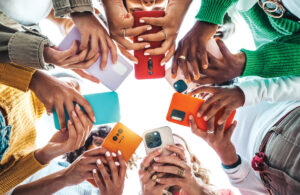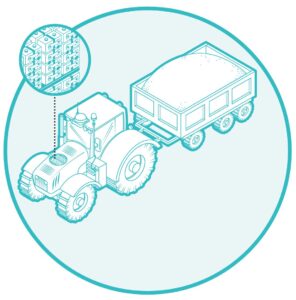2021 is finally here, and unfortunately the pandemic has followed. Although 2020 was not what everyone expected, from a technology perspective a lot of good things happened. Physicians are taking advantage of remote technologies that allow for effective telemedicine, and remote work and distance learning have proven successful.
The pandemic has made us realize how important the internet is for remote work and education and has expedited the implementation of broadband access for underserved areas. So, what’s going to happen in 2021? Gartner, a global research and advisory firm, suggests “Internet of Behavior” (IoB) will take off. But what is IoB?
You may be aware that big tech giants use your information to deliver tailored advertising or manipulate you to use their apps to increase engagement time with their products. Over the past several years, the “Internet of Things” (IoT) exploded into the consumer and business markets. These devices are usually classified as “smart” devices such as smart lights, garage door openers, power outlets, TVs or any number of internet connected devices. IoB will target the data collected from these devices and use that data to manipulate behavior.
Gartner believes in 2021, we will be more aware of IoB in our day-to-day lives. Data collected and used will be more individually focused – based on facial recognition, location tracking, and all the data surrounding IoT. This data will then be correlated with behavioral events such as purchases or device usage.
Organizations can use this data to influence behavior – like monitoring compliance with health protocols during the pandemic using artificial intelligence surveillance that can identify if masks are being worn, or thermal imaging to determine if someone has a fever. Many companies use data about their user’s location and preferences to reimagine the end user’s experience for their products or services.
According to Gartner, IoB might be in its infancy, but by year-end 2025, more than 50 percent of the world’s population will be exposed to at least one IoB program.
Ultimately, IoB can become the best marketing tool for an organization. It can give insight into their customers that they have been striving for. It will give them the ability to accurately predict future behavior and allow them to adjust accordingly. But there’s a dark side to IoB, and the problem isn’t technical. It will force us to ask ethical questions about how we gather and use all this data.
Chrissy Kidd, researcher and technology author, said, “The IoT does not gather data solely from your relationship with a single company. For instance, a car insurance company can look at a summary of your driving history. As a society, we’ve decided this is fair. But the insurers might also scour your social media profiles and interactions to “predict” whether you’re a safe driver — a questionable and extralegal move.”
Information such as delivery routes or when a person is home will become targets for hackers. Phishing attempts will be more difficult to identify due to the ability to craft such a personal attack.
As we move through 2021 and into the future, new technology and new data will always promise to make life better, more efficient and less demanding. Technology will always be able to turn data into information, but how we choose to use that information will shape the direction of our society.









